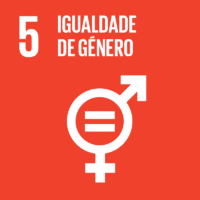Ciência_Iscte
Publicações
Descrição Detalhada da Publicação
Academia Militar
Book of Abstracts from 5th Erasmus Gender Seminar 2023
Ano (publicação definitiva)
2023
Língua
Inglês
País
Portugal
Mais Informação
Web of Science®
Esta publicação não está indexada na Web of Science®
Scopus
Esta publicação não está indexada na Scopus
Google Scholar
Esta publicação não está indexada no Google Scholar
Esta publicação não está indexada no Overton
Abstract/Resumo
This work addresses gender dimension and other diversity aspects in warfare, including gender bias in data collection, to go beyond mainstream approaches in policymaking and to infuse gender awareness into conceptual models in international security affairs, according to the elements of a gender-responsive approach to arms control identified by the UN Institute for Disarmament Research (UNIDIR). Gender perspective, based on the resource pack developed by the International Gender Champions (ICG) Disarmament Impact Group helps to shed light on the direct and reverberating impacts of warfare on women, men, girls and boys, such as the likelihood of being targeted by and the long-lasting biological and physiological impacts. focusing on analyzing sex and gender specific effects of emerging and disruptive technologies (EDTs). The 2020 European Commission experts’ report Gendered innovations 2. How inclusive analysis contributes to research and innovation: policy review warns that human bias is amplified by technology, inter alia in the applications of machine learning, artificial intelligence, robotics, facial recognition. Data sources on which this review relies include: UNIDIR, International Federation of Red Cross and Red Crescent Societies (IFRC), Control Arms, Small Arms Survey, MOSAIC Module, Reaching Critical Will, European Institute for Gender Equality. The study aims to enhance the ability of the international community to redress gender inequality in warfare and to mitigate gender impact in armed conflict.
Agradecimentos/Acknowledgements
--
Palavras-chave
Classificação Fields of Science and Technology
- Sociologia - Ciências Sociais
- Direito - Ciências Sociais
- Ciências Políticas - Ciências Sociais
- Outras Ciências Sociais - Ciências Sociais
- Filosofia, Ética e Religião - Humanidades
- Antropologia - Ciências Sociais
Contribuições para os Objetivos do Desenvolvimento Sustentável das Nações Unidas
Com o objetivo de aumentar a investigação direcionada para o cumprimento dos Objetivos do Desenvolvimento Sustentável para 2030 das Nações Unidas, é disponibilizada no Ciência_Iscte a possibilidade de associação, quando aplicável, dos artigos científicos aos Objetivos do Desenvolvimento Sustentável. Estes são os Objetivos do Desenvolvimento Sustentável identificados pelo(s) autor(es) para esta publicação. Para uma informação detalhada dos Objetivos do Desenvolvimento Sustentável, clique aqui.

 English
English



